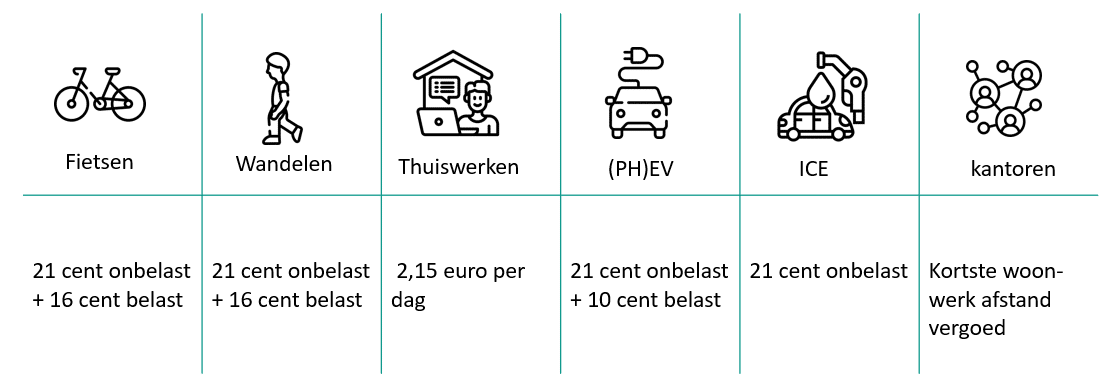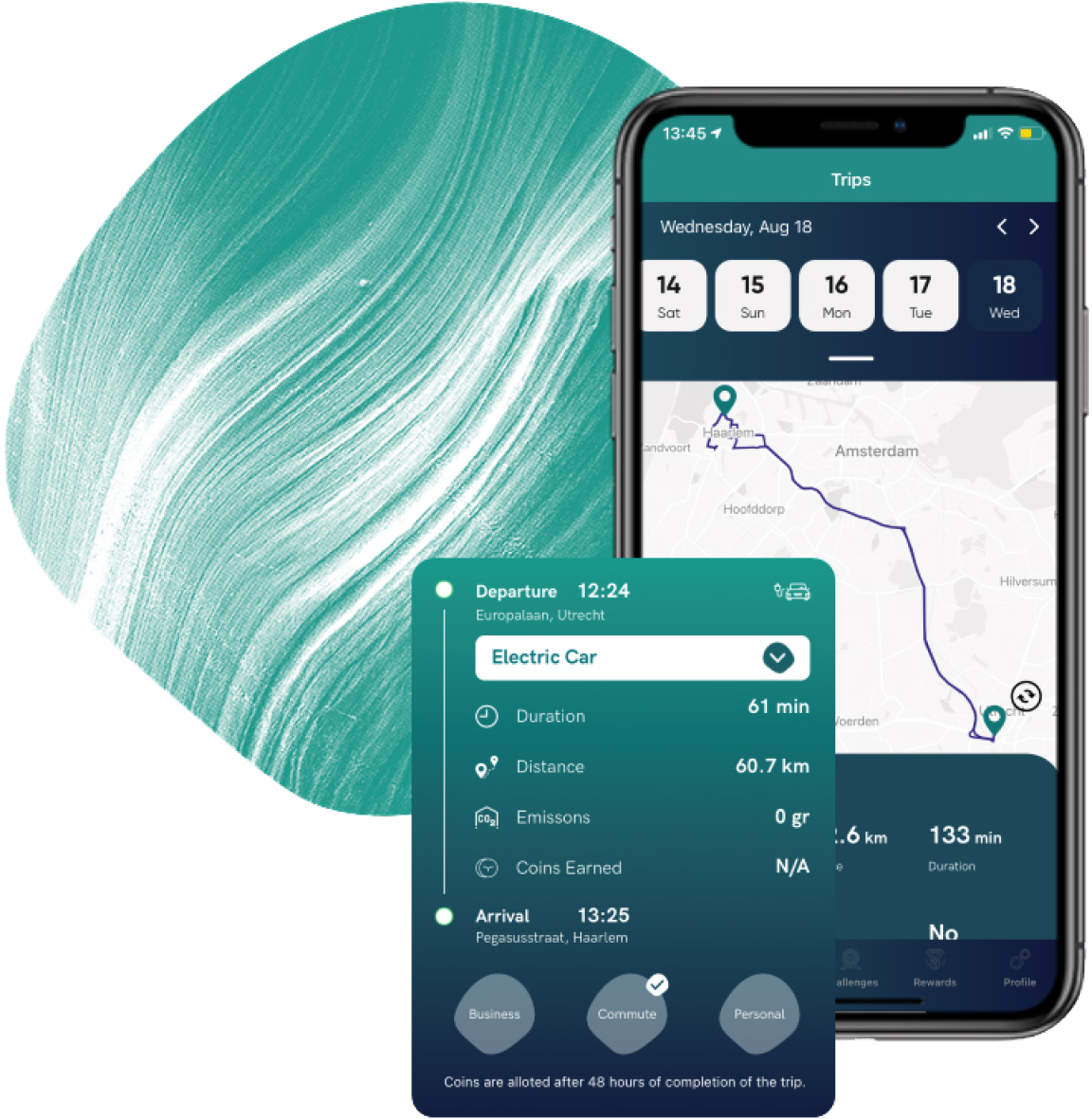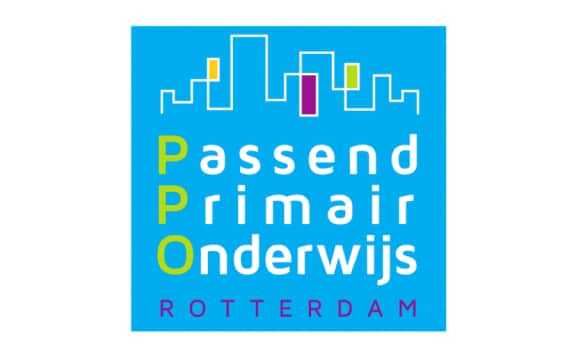
Travel reimbursement, how does it work?
There was a time when the employer reimbursed net €0.19 per kilometer for each kilometer traveled, whether it was for commuting or business didn’t matter. Whether you traveled by car, bicycle or foot didn’t matter either.
This was once…
But it is different now. Perhaps the simplest development is that the tax-free reimbursement per kilometer has been increased to €0.21.

Times change
The demand for sustainable solutions, healthier solutions, lack of parking, desire to work from home (or not) is forcing employers to think more about this. What are good solutions and what are not? We see a lot of different mobility policies and are therefore asked to think along in the creation of a contemporary mobility plan. Below are some examples in which we focus on different areas: Sustainability, vitality, behavioral change, legislation, costs, etc.

Sustainability
27% of our total CO2 emissions come from our travel behavior, more than half of which is due to business or commuting trips. As an employer, you can contribute significantly to reducing these emissions.
Meanwhile, we all want to travel safely, comfortably and efficiently, now and in the future. It helps to motivate your employees to travel sustainably with a smart travel policy.

Vitality
A healthier employee calls in sick less often, enjoys work more and is a more pleasant colleague. Vitality is actually a primary condition of employment; it is easy to manage this with your mobility policy.
The simplest solution is to reward the desired behavior, using the table above and ensure that more vital and active travel is rewarded. The risk you might encounter is that some people have to travel a lot due to longer distances or job functions that cannot be done by bike. They might feel disadvantaged. Therefore, rewarding travel done by public transport (OV) and public bicycle (OV-fiets) as opposed to the (lease) car can be a form of more sustainable travel.

Behavioral Change
Changing behavior, or unlearning habits, is difficult. It works for a while, but eventually, it is easy to revert to old habits. It feels familiar and easier; it is already in our systems.
It helps if desirable behavior is rewarded and insight into current behavior is provided. As seen above, it is not very complicated to provide better rewards for sustainable or cheaper travel methods compared to environmentally unfriendly ones. But you can do more.
Give employees insight into their own data: how many kilometers did they travel? How much CO2 was emitted? and organize internal challenges and rewards with compliments, (honorary) prizes, etc.
Read more about how we approach behavior change here.

Legislation
Employees may not be directly interested, but the Reporting Requirement Work-Related Person Mobility is just around the corner. In doing so, legislators expect employers with more than 100 employees to keep track of how everyone travels. The responsibility lies with the employer, but it also requires some things from the employee.
Providing a solution in the mobility policy that records how people travel greatly simplifies this for both employer and employee; it saves time and money. So help your employees record travel behavior.

To summarize, what do you gain from a sustainable mobility plan?
Declarations
We now know that behavior change comes from rewarding desired behavior. We also know that a financial incentive helps. But this creates a huge amount of administration. The payroll department already sees everyone coming with the monthly Excel sheet that has to be checked and entered into the ERP system….
There are two birds to be killed with one stone: when all travel behavior is recorded and reported anyway, the data for the proper declarations are already collected.

A sustainable mobility policy, how does this work?
Many of our clients seek our advice. So we have a lot of insight into the budgets and various ways in which employers set up their mobility policies. An example is shown here.
Do you have any questions? We are happy to help you!
Dynamic travel reimbursement; benefits in all areas

Dynamic travel reimbursement rewards desired behavior. Rewarding works better than punishing, but most of all, it’s more fun for everyone!
Satisfied employees create a better working environment, higher revenue and less absenteeism.

By encouraging sustainable choices such as working from home, using public transport or other sustainable mobility, you as an employer are contributing to our beautiful planet.

A sustainable and dynamic travel policy ensures a better operating result, not only with happier and healthier employees but also at the bottom line. By aiming for sustainable travel and recording travel behavior, your company complies with the Reporting Requirement Work-related Mobility of Persons. Saving time, effort and money.

Travel reimbursement app
Your complete mobility policy and thus all travel expenses are visible in the Fynch App. Our app automatically records how and if there is travel, categorized by business, commuting or working from home, these travel days are automatically imported into your salary package.
Again, it saves time, money and a huge amount of frustration.
Employers who are already leading by example

...ultimately found that Fynch offered the most options to meet the needs of our diverse workforce, from mechanics to managers.
View this caseOther employers who value sustainable mobility
Automate registration of CO2 emissions related to mobility
Save yourself and your workforce time and easily meet CO2 reporting requirements.





